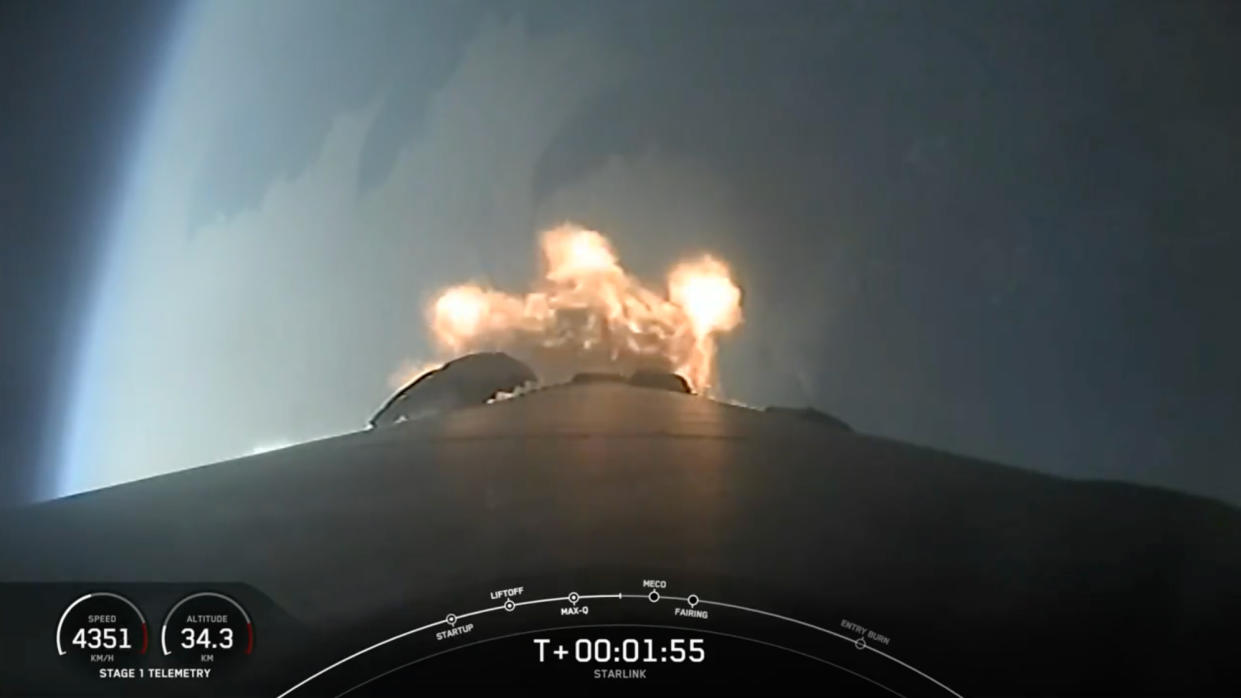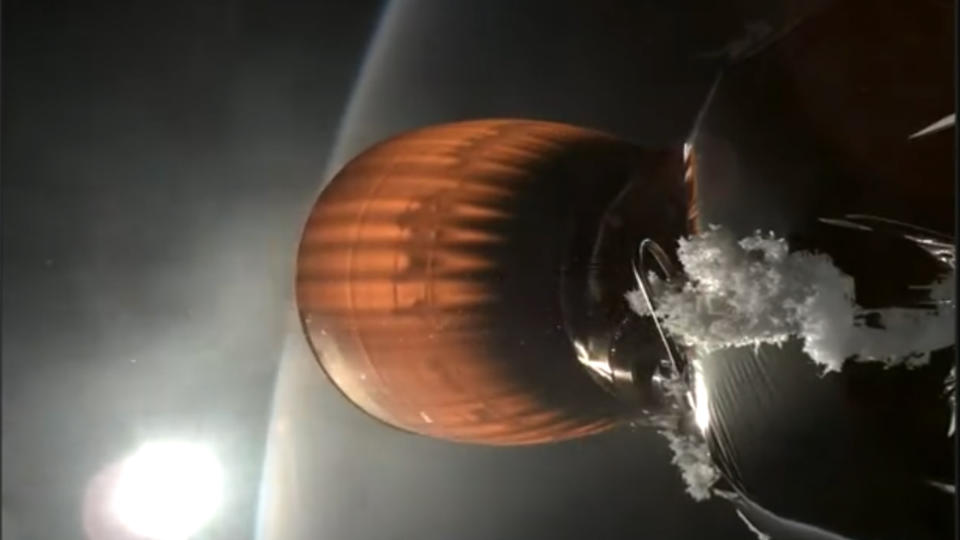SpaceX Falcon 9 rocket failure forces NASA to evaluate astronaut launch schedule for ISS

NASA is waiting to see if there will be "schedule impacts" for its next astronaut mission aboard SpaceX after a rocket failure last week, the agency said in a recent statement.
SpaceX's Falcon 9 rocket had a rare anomaly during a Starlink satellite launch on Thursday (July 11). The second stage on the rocket failed to work as planned, stranding the broadband satellites in an unusual orbit. As SpaceX and the Federal Aviation Administration (FAA) investigate why this occurred, an International Space Station (ISS) mission is under scrutiny.
Falcon 9 is also used to send NASA astronaut missions to the ISS aboard SpaceX's Crew Dragon spacecraft. The next scheduled effort, known as Crew-9, was supposed to send four astronauts aloft in mid-August. The group will relieve Crew-8, which has been on the ISS since March for what was expected to be about a half-year mission.
"Crew safety and mission assurance are top priorities for NASA," agency officials said in an e-mailed statement late Friday (July 12), adding they will "provide updates on agency missions including potential schedule impacts, if any, as more information becomes available." SpaceX, the statement added, has been providing information to NASA as the anomaly investigation proceeds.
Related: FAA investigating SpaceX Falcon 9 rocket failure

ISS missions, which typically last six months at a time, have flexibility built into them if they need to stay longer in space. SpaceX, however, is the only fully certified spacecraft that sends astronauts to space from U.S. soil.
The other crewed option is Boeing's Starliner, but it's not yet approved for operational ISS launches. A test mission, known as Crew Flight Test, is onboard ISS right now with two astronauts. Starliner is certified to return to Earth, but only in case of emergency; a complex investigation is ongoing after Starliner had issues with helium leaks and thrusters after its June 6 docking with ISS. The mission was only supposed to last 10 days, but due to the issues, a landing date is not yet scheduled.
Related: When will Starliner come home? Boeing and NASA still don't know

Additionally, SpaceX sends a portion of vital resupply missions to the ISS via its cargo Dragon spacecraft. Cargo Dragon also uses the Falcon 9 rocket. The last such docking, SpaceX's 30th, took place on March 4 with food, supplies and experiments for the Expedition 70/71 crew.
Other spacecraft can send cargo to the ISS, however, including Northrop Grumman's Cygnus and Russia's Progress. The next Progress launch is set for Aug. 15, Russian federal space agency Roscosmos announced last week via state news outlet TASS.
RELATED STORIES:
— SpaceX Falcon 9 rocket suffers failure during Starlink satellite launch (video)
— FAA investigating SpaceX Falcon 9 rocket failure
— SpaceX Falcon 9 rocket suffers rare last-second abort during Starlink satellite launch (video)
Aside from the ISS, SpaceX is also supposed to send a commercial astronaut mission into space this month with Crew Dragon and Falcon 9. Known as Polaris Dawn, the effort — funded by billionaire Jared Isaacman — plans a high-orbiting mission above Earth that will feature the first commercial spacewalk. Isaacman rode the same vehicles to space in 2021 on another mission he funded, called Inspiration4.
"SpaceX has an incredible track record with Falcon 9. I can say from personal experience they are very transparent when issues arise," Isaacman said in a post on X, formerly Twitter, last week. "I have no doubt they will arrive at a cause quickly and ensure the most cost-effective and reliable launch vehicle keeps delivering payload to orbit. As for Polaris Dawn, we will fly whenever SpaceX is ready and with complete confidence in the rocket, spaceship and operations."

